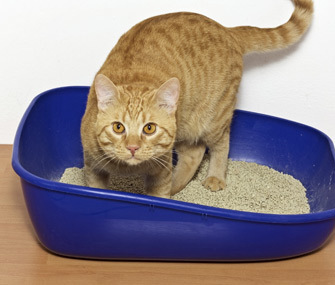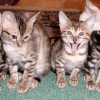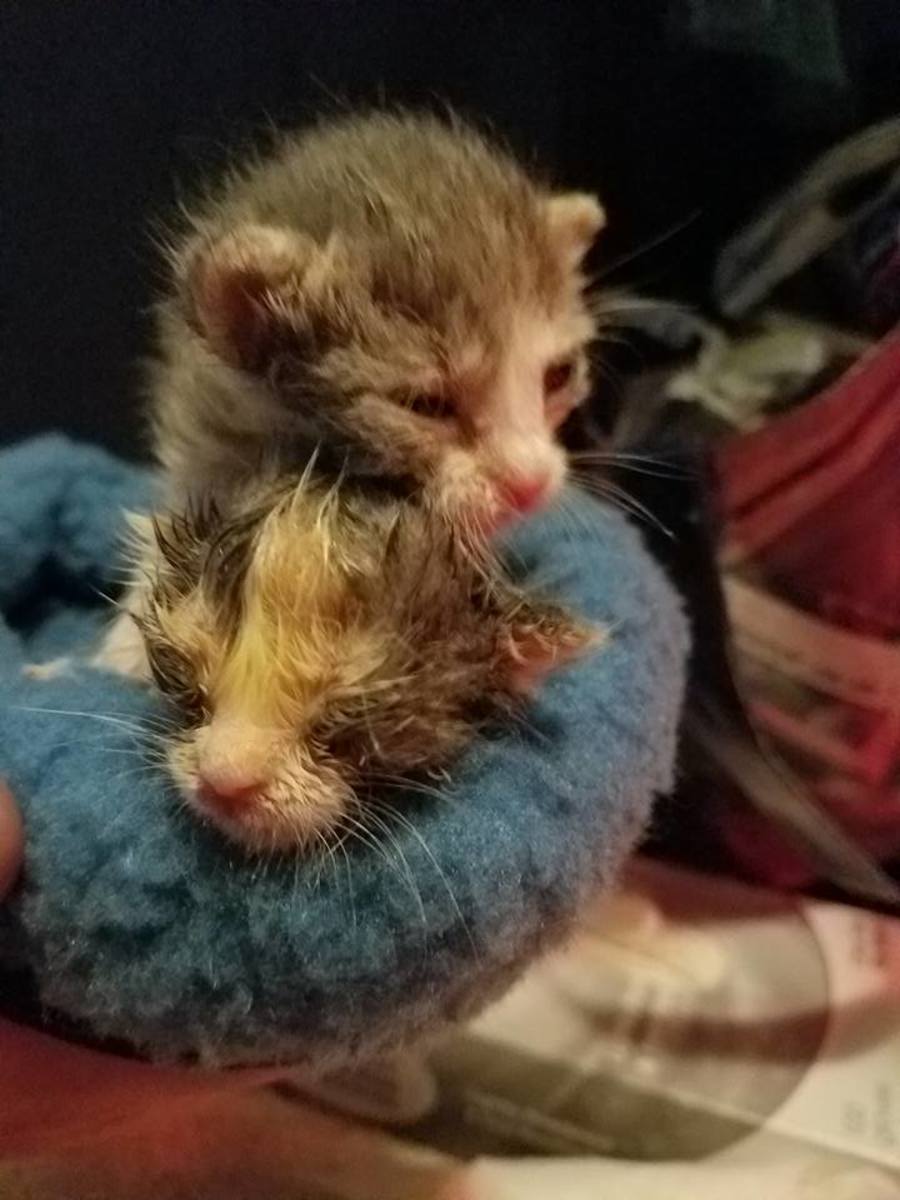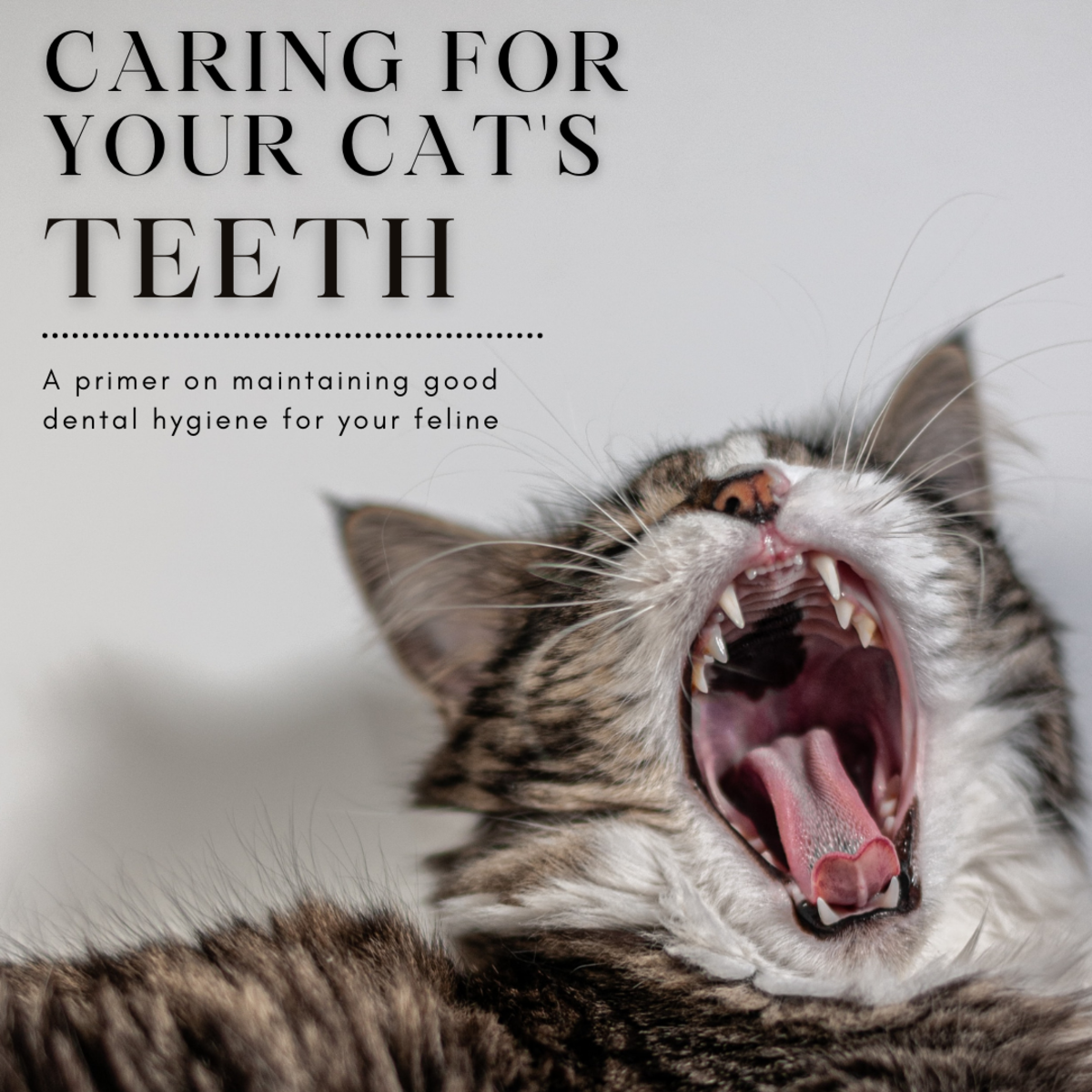Cat Constipation and Treatment

Why is Your Cat Constipated?
Cat constipation very often can be mistaken for an overlooked bladder outlet obstruction due to the straining that takes place in both instances. For this reason, a clear distinction must be made before treating the cat for constipation.
Basically, constipation is defined as a condition of the bowels in which the feces are dry and hardened and evacuation is difficult and infrequent. There can be an obstructed passage and there is an element of pain during defecation. A cat who continuously strains but is unable to pass stool is probably constipated. However, straining also occurs with colitis and Feline Urinary Syndrome (FUS). (FUS is discussed further in Cat Urinary Problems)
The most common causes of cat constipation are a poor or incorrect diet and lack of exercise. Commonly, cats have one or two stools per day, while others may go for a few days before having a bowel movement. The cats that wait longer might have more difficulty passing their stools.
A frequent cause of dietary constipation occurs with many feral cats who eat undigestible parts of birds or rodents. This slows down the movement through the bowel and produces hard feces held together by hair, bone, and feathers. If you have an outdoor cat who participates in this sport, these types of fecal concretions might need to be broken down with forceps and removed by enemas.
Concentrated high meat diets produce dark, tenacious, small gummy stools. Due to their lack of volume and consistency, they are difficult to pass. In addition, the intake of water among cats is generally low compared to most other animals. This can add to the problems. Also, cats that eat canned food, which is 75% water, may not feel the need to drink for several days.
Diets low in fiber also cause the stools to be of small caliber. Older less active cats experience reduced bowel activity and have weakness of their abdominal wall muscles. Both these conditions can lead to prolonged retention and an increase in the hardness of the stool.
Other common causes of hard stool and constipation are hairballs, grass, cellulose, paper, and cloth. Hairballs can be prevented with certain dry diet mixes on the market or with a product called Petromalt (found in most pet food stores).
Very rarely, there is a case of chronic constipation due to an enlarged, sluggish, poorly contracting colon. This condition is called Megacolon. These cats require life-long treatment with stool softeners and special diets, and should regularly be supervised by a veterinarian. A chronically constipated cat may have a bloated look, seem lethargic, and pick at his food. Cats with impactions often pass blood-tinged or watery-brown stool. This might be mistaken for diarrhea, but what is actually happening is that liquid stool is being forced around the blockage. If you suspect a fecal impaction confirm this by digital examination using a well-lubricated glove.
Managing Cat Constipation
Treatments For Cat Constipation
There are several treatments for cat constipation that do not necessarily require veterinary supervision. In the case of enemas, the support of another person, to restrain the animal might be necessary.
--- A change in diet may relieve the problem, especially if you are using canned food as a major part of the diet. Dry food has higher fiber content and adds more bulk to the stool. If you are already using dry food, switch to another product to see if it makes the stools softer. In the older cat with an inactive bowel, soaking the food with equal parts of water can aid him greatly. Let the mixture stand for twenty minutes before feeding. Increasing his activity and exercise, if possible, will also help.
--- Small hard stools can be made softer with a stool softener such as Colace. This medication comes in drops or syrup and is added directly to the meal. Use the pediatric size dose.
--- An episode of mild constipation can be treated with a laxative such as Milk of Magnesia. The usual dose is two to three teaspoons per day. Do not use laxatives regularly unless instructed to do so by a vet. Instead, use liver or milk which has a laxative effect.
--- A fecal impaction requires an enema. Enemas are given at the rate of one ounce per ten pounds of body weight.
--- Tap water enemas are given through a rubber catheter connected to an enema bag. Lubricate the tip and insert it far into the anal canal so the rectum retains the fluid. One or two inches is enough. Otherwise, if the cat struggles, the catheter could injure the wall of his rectum.
Constipation in the Kitten
Cat constipation in the kitten occurs less frequently than in an adult cat. The kitten that is hand-fed needs to have their abdominal and perineal areas massaged with a wad of cotton soaked in warm water after each feeding to stimulate the elimination reflex. If the kitten is constipated, a warm soap-water enema can be given by eyedropper (2 or 3 dropper-fulls after feeding). Alternately, you can give mineral oil or Milk of Magnesia (3 drops per ounce body weight) by mouth. You must use extreme caution when doing this to avoid aspiration into the lungs. If you are feeding a formula containing syrup, give dark syrup which has a laxative effect, instead of white syrup or honey.\
References: The Cat Owner's Home Veterinary Handbook by Delbert G. Carlson, D.V.M and James M. Giffin, M.D.
- Is Your Vomiting Cat Sick?
It is a fact that cats vomit more easily than most other animals and frequently this action represents a flushing out of toxins from the body rather than an imminent illness.
Cat Probiotic
- PROMOTES DIGESTIVE HEALTH: Probiotics live in the digestive tracts of dogs and cats. Probiotics are known as "good bacteria" because they perform a variety of positive functions. Sometimes our furry friends have a deficiency of this live bacteria and yeast in their digestive systems, and need help in the form of a supplement like our probiotic powder.
- RELIEVES DIGESTIVE AILMENTS: Probiotics help alleviate a variety of intestinal issues including diarrhea, irritable bowels, nausea and similar. These can either be on-going or temporary problems. The powder is effective for both cats and dogs.
- CREATED JUST FOR DOGS AND CATS: A probiotic designed for a person isn't going to work very well for a pet. Our ProBiotic powder is designed by veterinary experts specifically for the unique needs of dogs and cats. Our powder is all natural with no preservatives or other additives.
- PREVENTS FUTURE PROBLEMS: Probiotic powder prevents many future instances of vomiting, diarrhea and other digestive problems. Some pets also experience a decrease in urinary tract infections. If you have an outdoor cat, probiotics help prevent many problems they cat may get after eating small animals.
- 100% SATISFACTION GUARANTEE: We proudly stand by our product. If you don't think this is the best probiotic powder, we'll give you a hassle-free refund. All of our products are made in a GMP compliant laboratory located in the USA.
- Cat Health Problems
Common cat health problems range from simple inconveniences to life-threatening accidents and illnesses. If you notice any unusual behavior in your cat or kitten (especially things like not eating, constipation, lethargy, or a dull coat), you should





